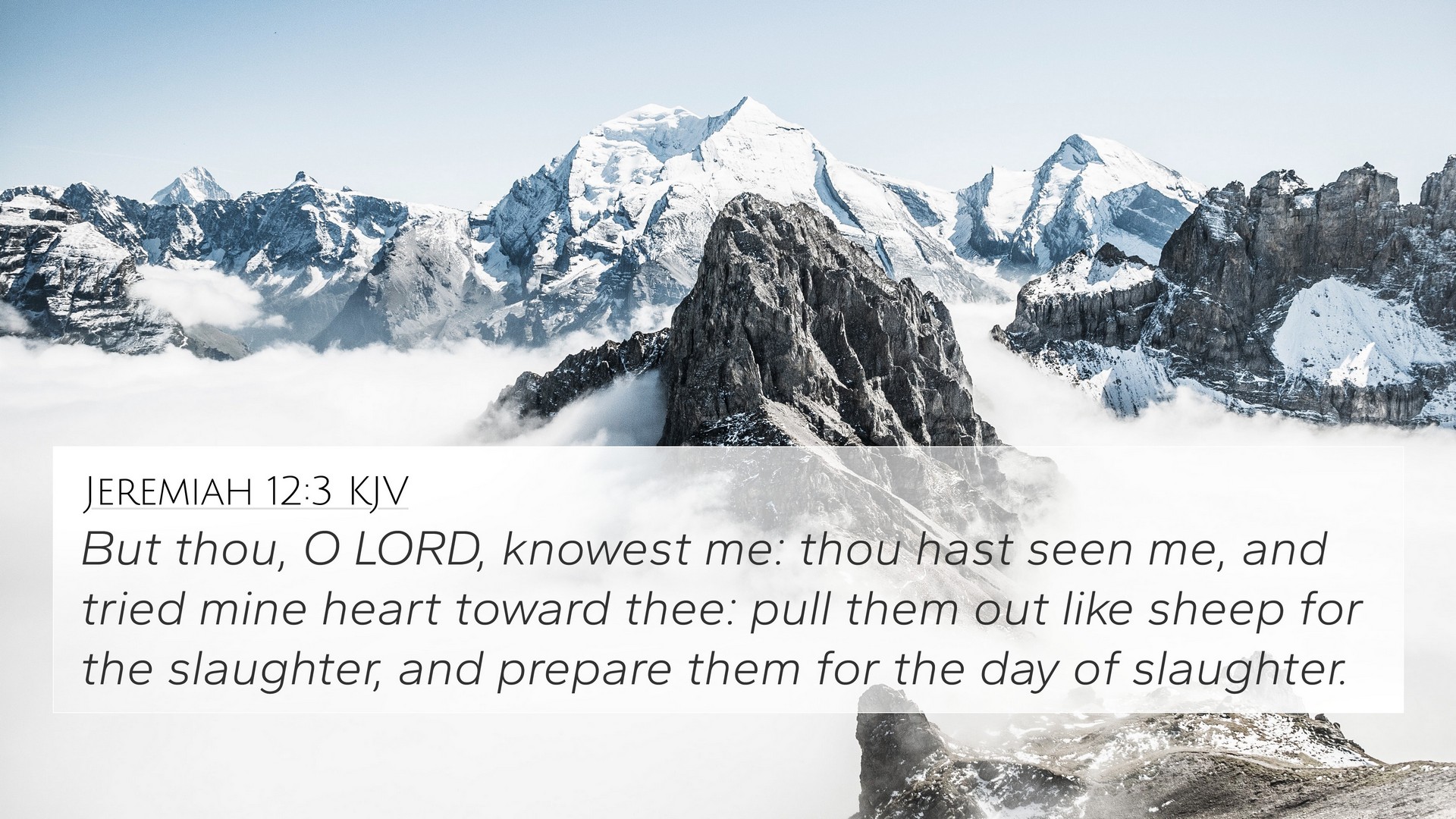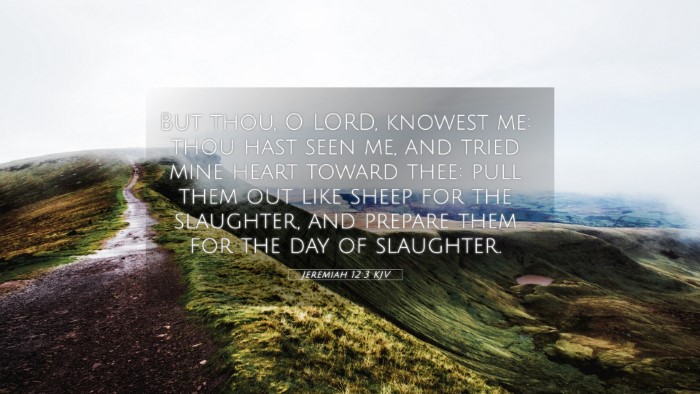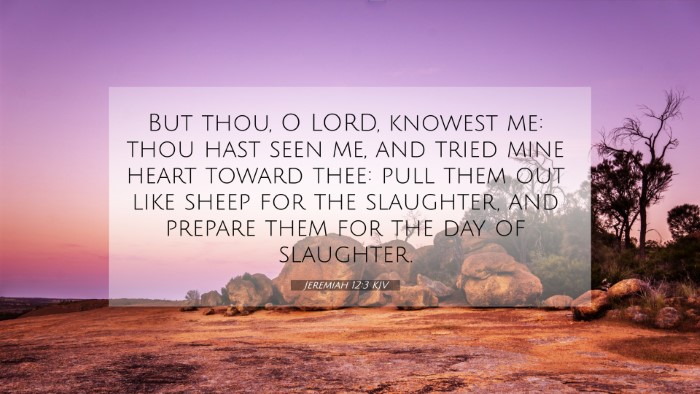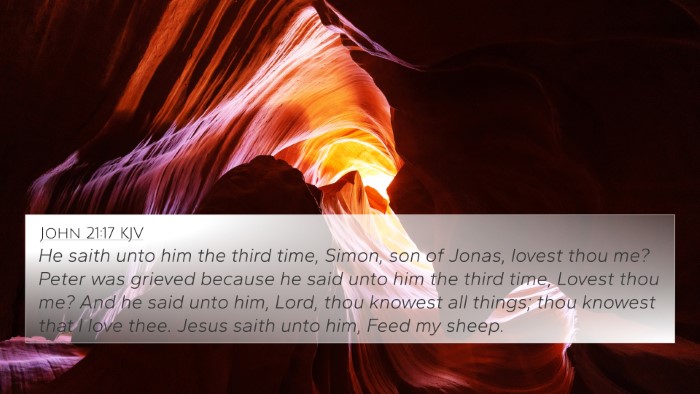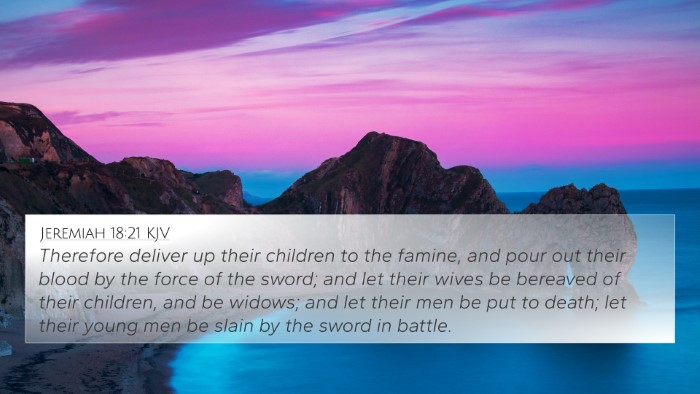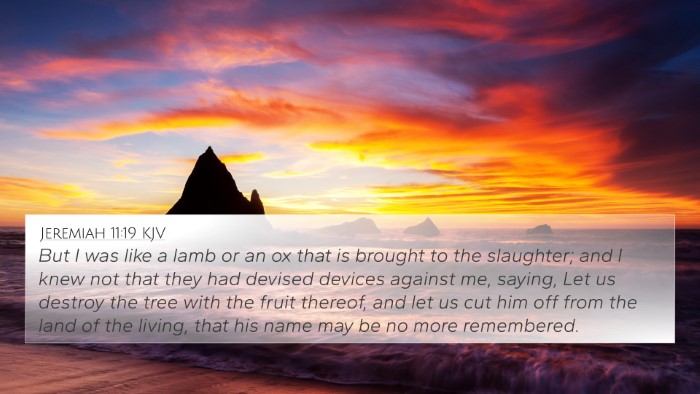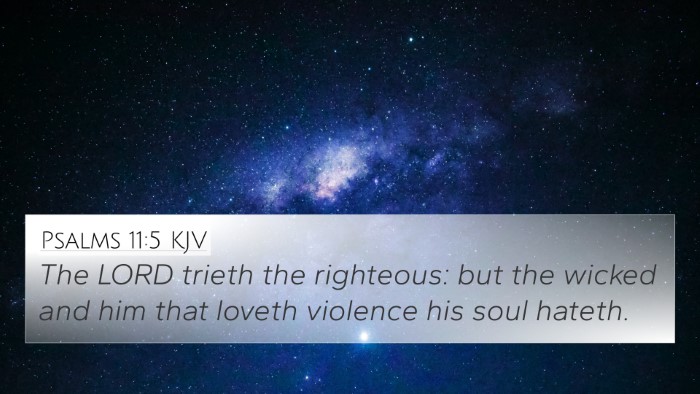Understanding Jeremiah 12:3
Jeremiah 12:3 presents a powerful and poignant expression of the prophet's anguish and his dialogue with God regarding the prosperity of the wicked. This verse serves as a vital point of reflection, encouraging deeper analysis of God's justice in the face of adversity.
Text of Jeremiah 12:3
"But You, O Lord, know me; You have seen me, and You have tested my heart toward You. Pull them out like sheep for the slaughter, and prepare them for the day of slaughter."
Summary of Biblical Meaning
This verse encapsulates three core themes derived from various public domain commentaries:
- Divine Knowledge: The prophet Jeremiah acknowledges God's omniscience and intimacy of knowledge regarding his life and struggles.
- Justice and Judgment: The plea for justice in the face of rampant wickedness calls for God's intervention and judgment against those who oppress.
- Faith and Testimony: Jeremiah's heartfelt plea reveals a deeper trust in God's ultimate plan despite the apparent triumph of evil.
Commentary Insights
Matthew Henry: Henry emphasizes God's comprehensive awareness of our hearts and intentions. He notes that even in distress, we are encouraged to present our grievances before God, reflecting our faith in His righteousness.
Albert Barnes: Barnes points out the contrast between the prosperity of the wicked and the suffering of the righteous. He suggests that Jeremiah's cry for justice is a universal theme shared by those enduring oppression.
Adam Clarke: Clarke interprets this verse as a testament to Jeremiah's honesty with God, highlighting that divine justice will eventually be realized, even if it seems delayed in the present time.
Connecting Bible Verses
To enrich understanding, it is vital to identify cross-references that illuminate Jeremiah 12:3. Here are several pertinent verses:
- Psalm 37:1 - "Do not fret because of evildoers, nor be envious of the workers of iniquity." This verse echoes Jeremiah's concerns about the prosperity of the wicked.
- Habakkuk 1:2-4 - "O Lord, how long shall I cry, and You will not hear?" Similar to Jeremiah, Habakkuk addresses God's seeming inaction against injustice.
- Romans 12:19 - "Beloved, do not avenge yourselves, but rather give place to wrath; for it is written, 'Vengeance is Mine, I will repay,' says the Lord." This aligns with Jeremiah's call for divine justice.
- Proverbs 11:21 - "Though they join forces, the wicked will not go unpunished; but the posterity of the righteous will be delivered." This emphasizes the ultimate fate of the wicked.
- 2 Peter 3:9 - "...not willing that any should perish but that all should come to repentance." This verse relates to God’s patience before enacting judgment.
- Lamentations 3:34-36 - "To crush under one's feet all the prisoners of the earth, to turn aside the justice due a man before the Most High..." Lamentations reflects the grief of seeing injustice unaddressed.
- Isaiah 59:15 - "Truth is nowhere to be found, and whoever shuns evil becomes a prey." This reinforces the struggle against unrighteousness.
Thematic Connections
This verse encompasses broader themes within Scripture, including:
- The Problem of Evil: Exploring why the wicked prosper while the righteous suffer is a recurring concern in Scripture.
- Faith in Adversity: Throughout the Bible, faithful figures wrestle with doubt and express their pain to God.
- Divine Judgment: The assurance that God will ultimately judge the wicked is a consistent theme in both the Old and New Testaments.
Tools for Bible Cross-Referencing
To explore these connections further, one might employ:
- Bible concordances to locate related scriptures.
- Cross-reference Bible study techniques that reveal inter-Biblical dialogue.
- Comprehensive guides for identifying thematic links between verses.
Conclusion
Jeremiah 12:3 serves as an integrative verse that unveils the heart of human struggle against injustice while affirming faith in God's ultimate justice. By engaging with this verse and its cross-references, believers can deepen their understanding of divine justice and human suffering throughout the Scriptures.
